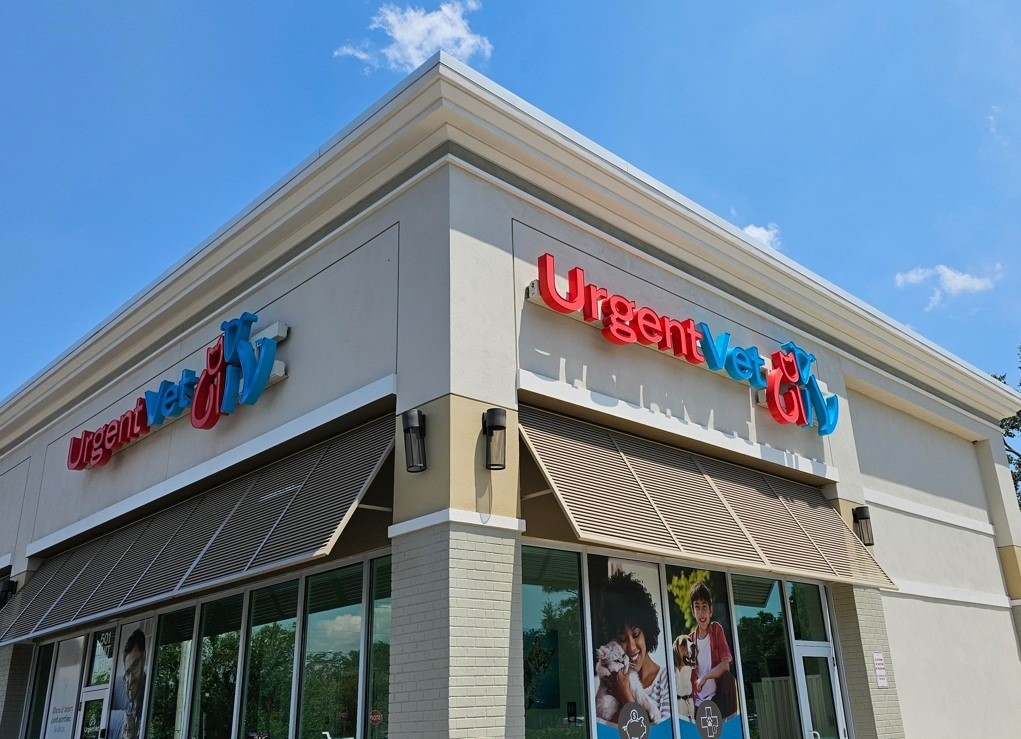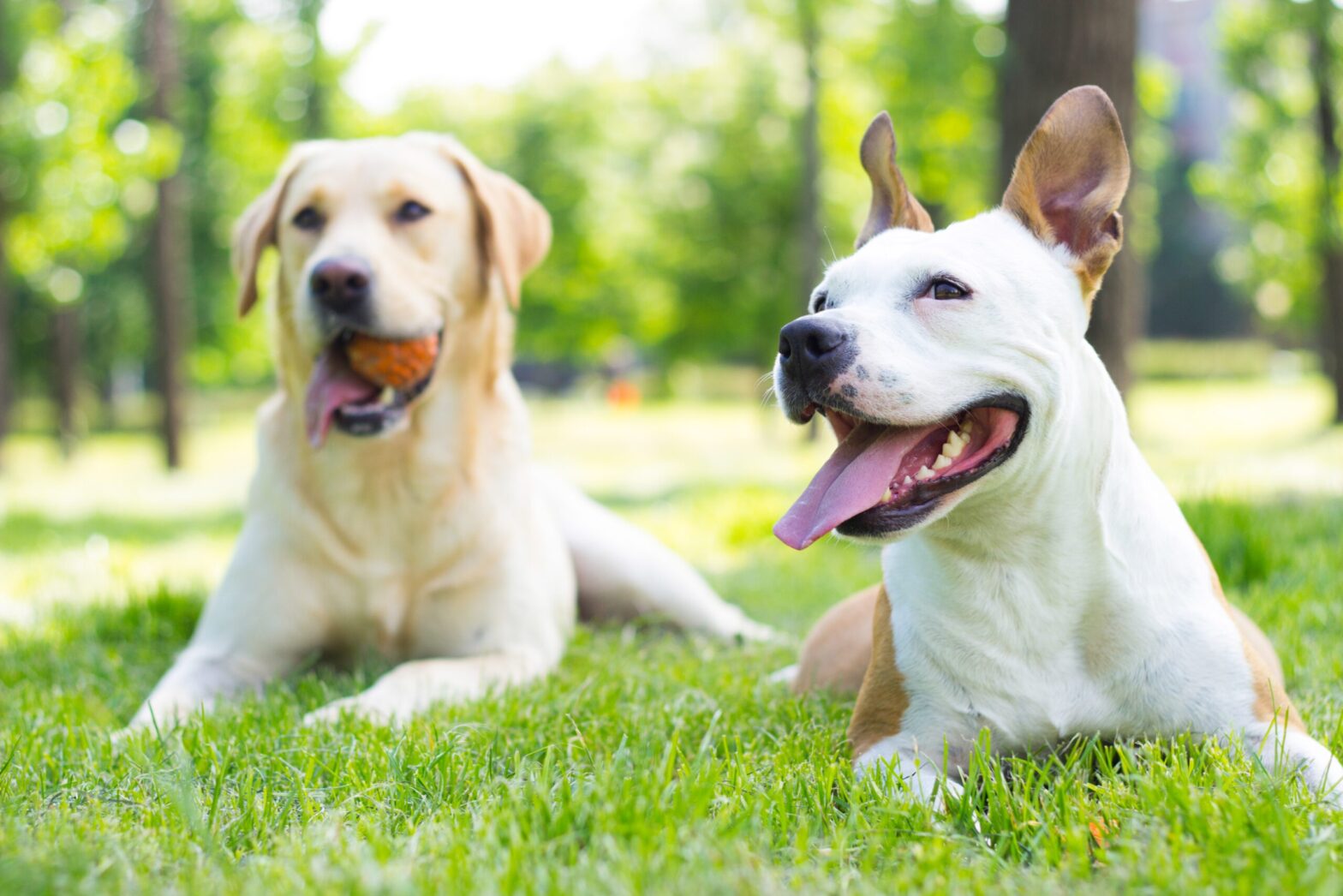Summer is an exciting and busy time for many pet owners and their pets. But, as the mercury rises and schedules fill up with outdoor events and adventures, pet safety risks also increase.
Ensure your summer memories are spent under the sun—not in the veterinary hospital or your nearest UrgentVet—by incorporating these summertime safety tips into your daily routine.
Every year, countless pets suffer from heat stroke—a life-threatening condition in pets where their internal body temperature becomes so high that they cannot cool themselves. Heat stroke can occur rapidly in warm and humid weather, especially in pets left without shade or in an enclosed space, such as a parked vehicle.
Avoid heat stroke and other heat-related injuries by monitoring your pet and keeping them indoors during high temperatures and humidity, and taking these proactive measures when you do go outdoors:
- Providing water — Dehydration happens rapidly during warm weather and your pet must have unlimited access to cool fresh water.
- Taking frequent breaks — Cool down by returning indoors or to a shaded area.
- Ensuring access to shade — Shaded areas change throughout the day. Relocate your pet if necessary to ensure they can always find shade.
- Using cooling aids — Cooling wraps and mats can help keep your pet comfortable.
- Monitoring your pet for distress — Watch your pet for early heat stroke warning signs, including rapid panting, red gums, excessive drooling, high heart rate, and restlessness.
- Taking your pet with you — Never leave your pet unattended in a vehicle or outdoors for any length of time.
- Knowing when to say “No” — Warm weather can be deadly, so if you’re not sure you can keep your pet at a comfortable temperature, leave them at home.
- Walk in the morning– Take your pet for a walk early in the morning before the humidity rises and the pavement gets hot
- Brachycephalic breeds are heat sensitive– “Smushed-face” dogs such as Frenchies and Pugs are extra sensitive to heat and will overheat faster than other breeds
- Pool safety– Just like children, keep your pet away from the pool when not closely supervised, and have a barrier to prevent accidentally falling in
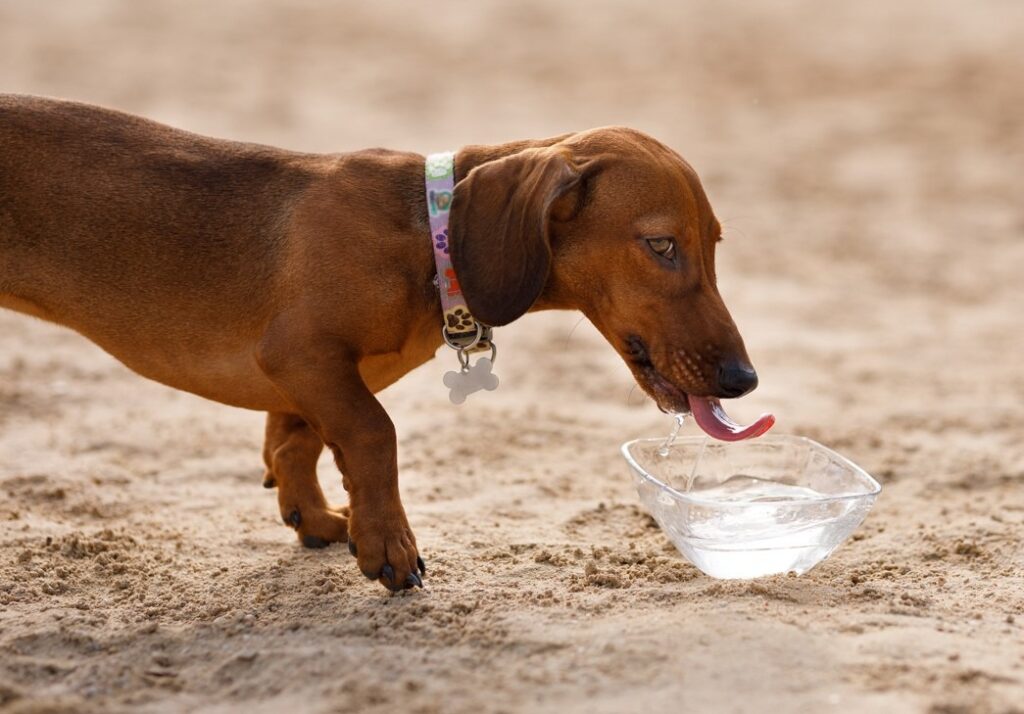
If you see your pet in heat distress, immediately move them to a cool, ideally air-conditioned, area, and wet them down with cool, not cold, water. If they are unconscious or seizing, immediately transport them to the nearest veterinary emergency center.
#2: Turn down the volume: Help your pet cope with fireworks
Dogs and cats can severely panic at the lights and sounds of fireworks. Protect your pet by keeping them in a safe indoor space, away from windows or doors. Play soft music, close the curtains, and distract them with a long-lasting treat or food-stuffed toy. If your pet suffers from noise anxiety, your regular veterinarian can prescribe calming medication. It is best to make an appointment for these medications a few weeks in advance.
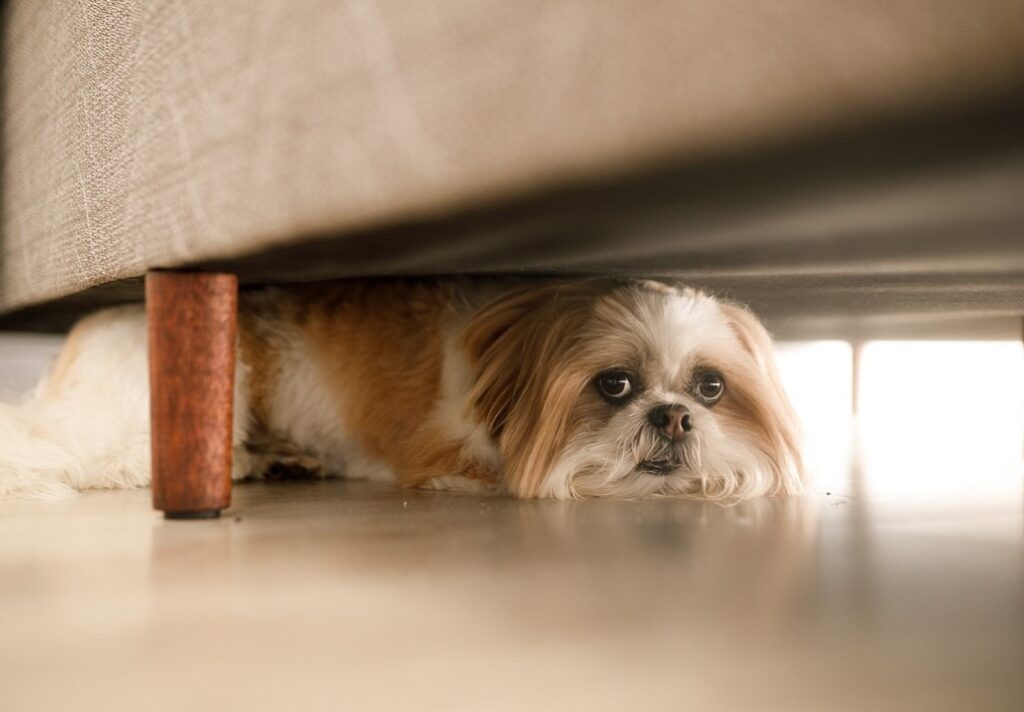
Never take your pet, no matter how well-socialized, to a fireworks event. Frightened pets can easily slip their collars or jump out of your arms to flee the loud sounds and flashing lights. Runaway pets can easily become disoriented and become lost, or hit by a car. Avoid heartbreak by ensuring your pet wears current identification, is microchipped, and that their microchip is registered with your current contact information. Your veterinarian should scan the chip at least once a year to ensure the chip is in place. The Fourth of July is the number one day of the year that pets are lost.
#3: Protect those paws: Avoid hot asphalt when walking your pet
Although you should not take a summer vacation from your pet’s exercise routine, modifications are likely necessary to ensure your pet stays cool when temperatures rise. Hot asphalt is perhaps the most frequently overlooked cause for heat-related injury in dogs. Prolonged contact (e.g., walking or jogging) with surfaces that can reach nearly 150 degrees on an 85-degree day can lead to serious paw pad burns.
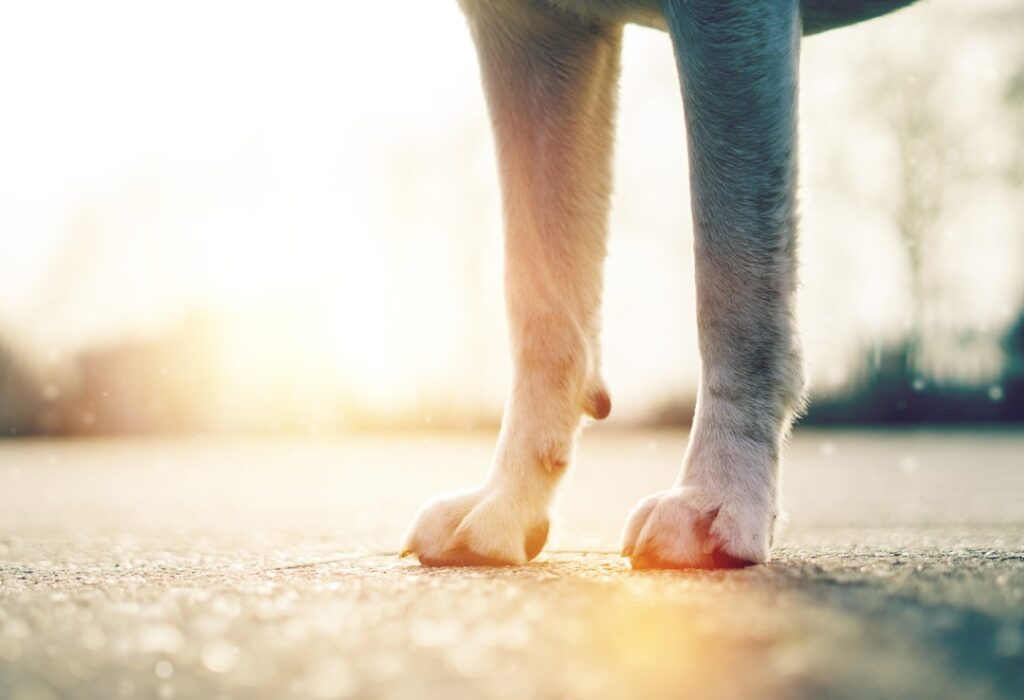
Avoid paw injuries by rescheduling your dog’s exercise to the morning. If that is not possible, test the surface temperature with the palm of your hand—if you cannot comfortably hold your hand in place for five seconds, walk your dog on grass or return indoors, and consider buying your dog a pair of well-soled dog boots.
#4: Paw-ty smart: Keep your pet safe during summer cookouts
If summer block parties and barbecues are on your to-do list, pay close attention to your party animal and prevent common party-crashing emergencies, such as toxin ingestion, burns, fires, and escape.
- Keep toxic foods out of reach — Many popular party ingredients, including onions, garlic, alcohol, chocolate, macadamia nuts, grapes, and caffeine, are poisonous to pets.
- Leash your dog — Keep friendly dogs leashed to avoid accidents and mischief.
- Position the grill in a pet-free zone — Grill-related injuries, such as burns, accidental fires, internal punctures (e.g., skewers, grill forks), and grease spills, are common.
- Advise guests not to feed your pet — Bones and corn cobs can cause choking or life-threatening intestinal blockages, while fatty meat trimmings and unusual foods can trigger dangerous and painful pancreatitis.
- Confine fearful or anxious pets — Not every pet enjoys a party. Provide nervous pets with a safe and secure place where they can rest undisturbed. Also, post signs asking guests to stay out of your pet’s safe area.
- Keep the garbage cans out of reach
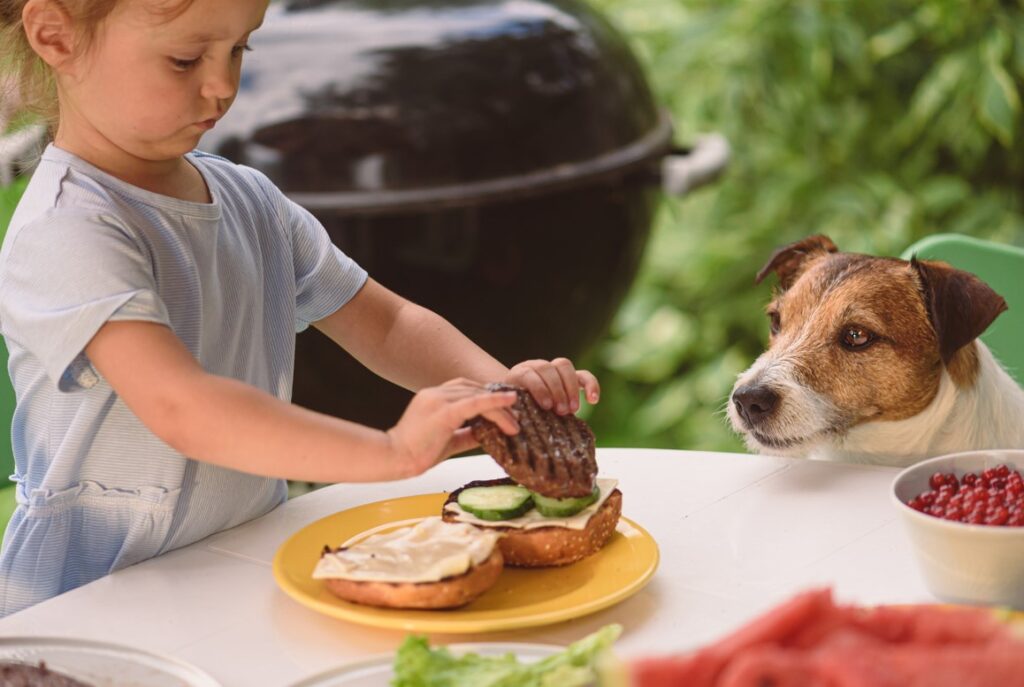
Don’t let common pet safety hazards cloud your pet’s summer fun, when a little preparation and care can ensure you and your four-legged friend make only sun-kissed memories.
However, should your pet’s summer adventures go sideways, an UrgentVet location near you is equipped to provide knowledgeable, compassionate after-hours care. From bites and stings, to sprains and strains—and everything in between—our UrgentVet teams are ready to help with any non life-threatening emergency. Simply walk in, or check-in online for timely, attentive veterinary care—because your pet can’t wait to feel better.
